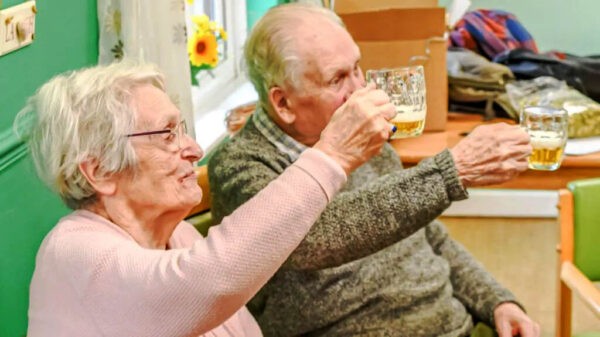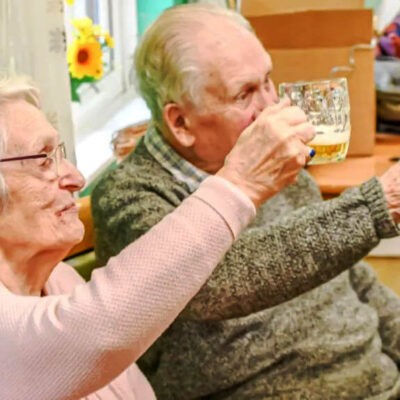Beer against dementia

Do you have any fears hidden deep inside you that you are afraid to admit? I have one – I am afraid of losing my memory and becoming a burden to my children. I’m afraid of a man whose slogan was “Nothing is too much!” to become a helpless human being…
Nevertheless, it is a very real danger, and no defense against it has yet been created… According to the 2021 statistics published on the UN website today, there are 55 million people with dementia worldwide. This disease affects approximately 8 percent of women and 5 percent of men. WHO experts fear that by 2030 the number of people with dementia could rise to 78 million, and by 2050 it will exceed 139 million.
What can we do? You can read WHO reports, or you can try to change the world yourself. That’s what the members of Alive, a charity organization dedicated to improving the quality of life of older people and their caregivers, think.
The Hoppiness project, created by Alive Activity and researchers at the University of Bristol, aims to return residents of care homes to an active life. Of course, they will not become the same as they were when they were younger, but the process of gradual withdrawal from life will be stopped. The main occupation of nursing home residents is watching television programs, and television is known to kill the personality in us. Researcher Karen Gray said it was important to stay physically and mentally active as we age, but explained that in nursing homes, the opportunities to do so are “diminished”.
The Hoppiness project, created by Alive Activity and researchers at the University of Bristol, involves residents of Meadowcare Home and Beaufort Grange care homes in Bristol. The aim of the project is to get the residents of these homes involved in growing hops and then brewing beer using these hops.
At the first session at the care home, the project was introduced through a session of reminiscence and sensory experiences. We photographed the hop harvest in Kent, the old Courage brewery in Bristol, and scenes from pubs to stimulate conversation, say the project organizers. We also had objects for people to touch and play with – glasses with dimples, bottle openers, beer coasters – and we sang table songs together. Likewise, we sniffed and ran our hands over dried hops and tasted locally made beer! There was a lot of laughter during the session, and we discovered many people involved with beer and hop farming. One man was growing hops in his garden, and another was enthusiastic about St. Austell Brewery.
Following the planned brew, the beer will go on sale in local pubs, helping to raise awareness of dementia and challenge stereotypes about old age, care homes and providing activities for people living with dementia.
One of the secrets of beer’s longevity is that it connects people. And, as it turns out, it not only connects people, but also helps to get people up and running again.















